Abstract
In vitro functions of polymorphonuclear (PMN) neutrophils were studied in 20 patients with progressive systemic sclerosis (PSS). An increase in the basal chemiluminescence (CL) activity of peripheral blood PMNs was found, suggesting that these cells had been preactivated in vivo. Patients with more extensive skin disease or signs of disease progression tended to have higher basal CL values. Active oxygen products during the respiratory burst may increase the extent of inflammatory and fibrotic processes and could be involved in the endothelial injury in PSS. The stimulatory capacity of CL response was normal in our study. No alterations were found in the opsonised yeast phagocytic activity of granulocytes when compared with control values. The binding of erythrocyte-antibody particles was found also to be normal. A depressed chemotactic activity of PMN cells against zymosan activated serum was also shown. The cause of the decreased chemotaxis of PMNs remains to be elucidated.
Full text
PDF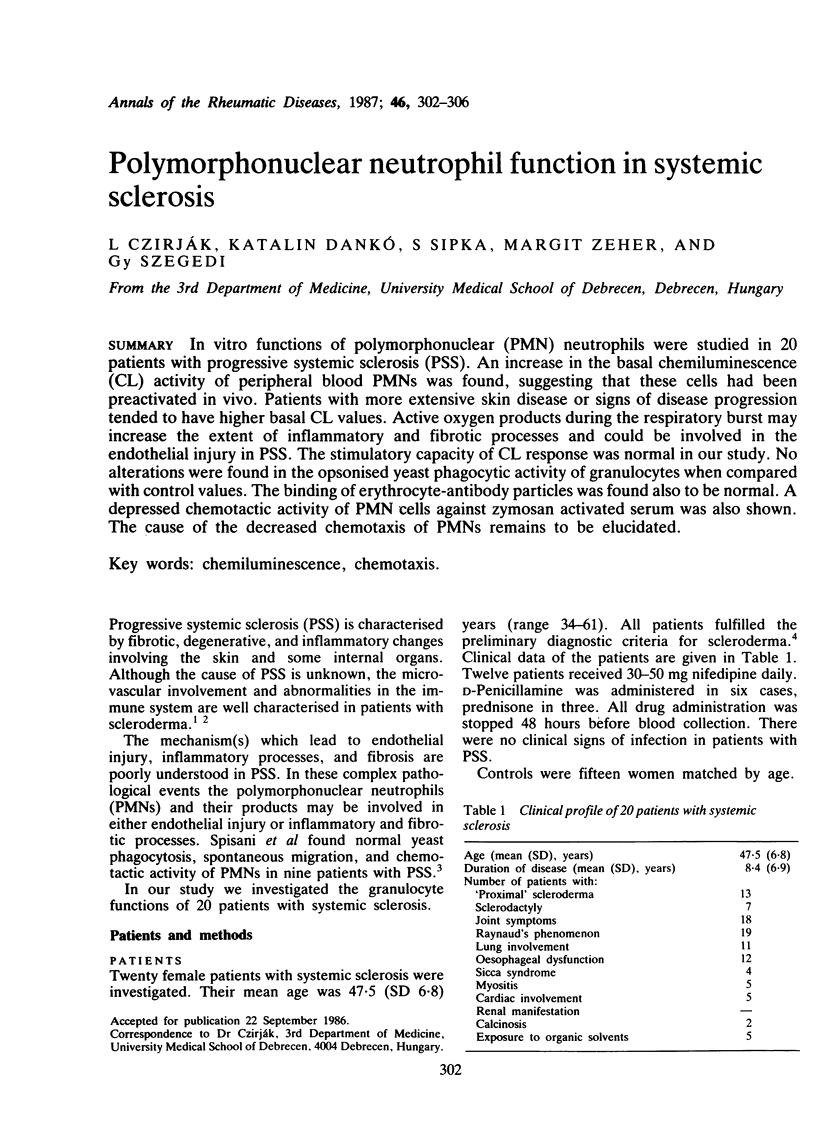
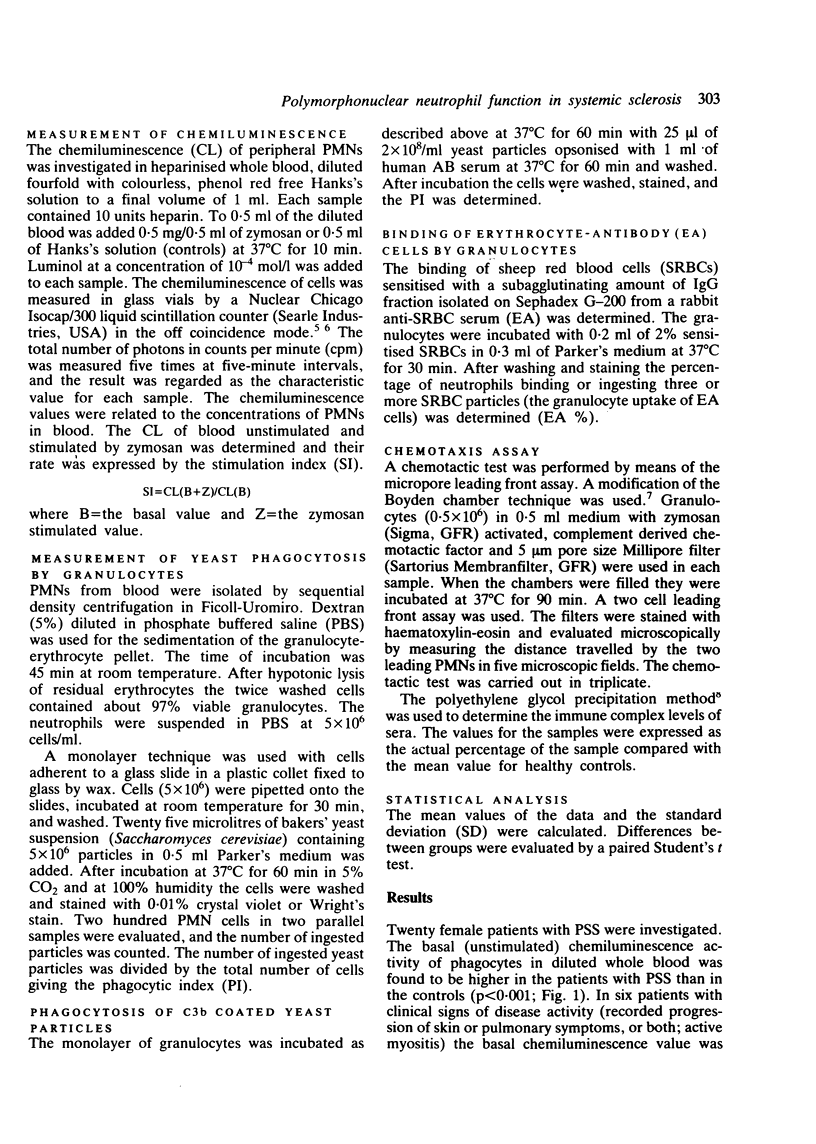
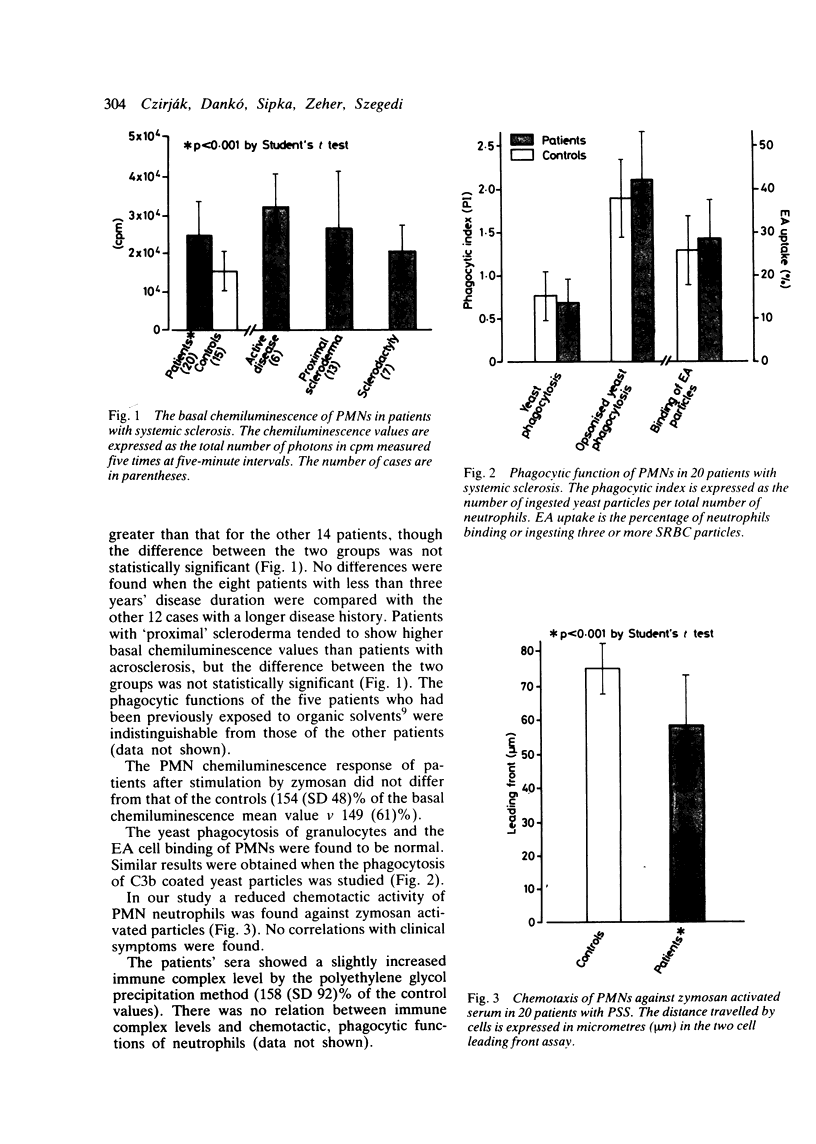
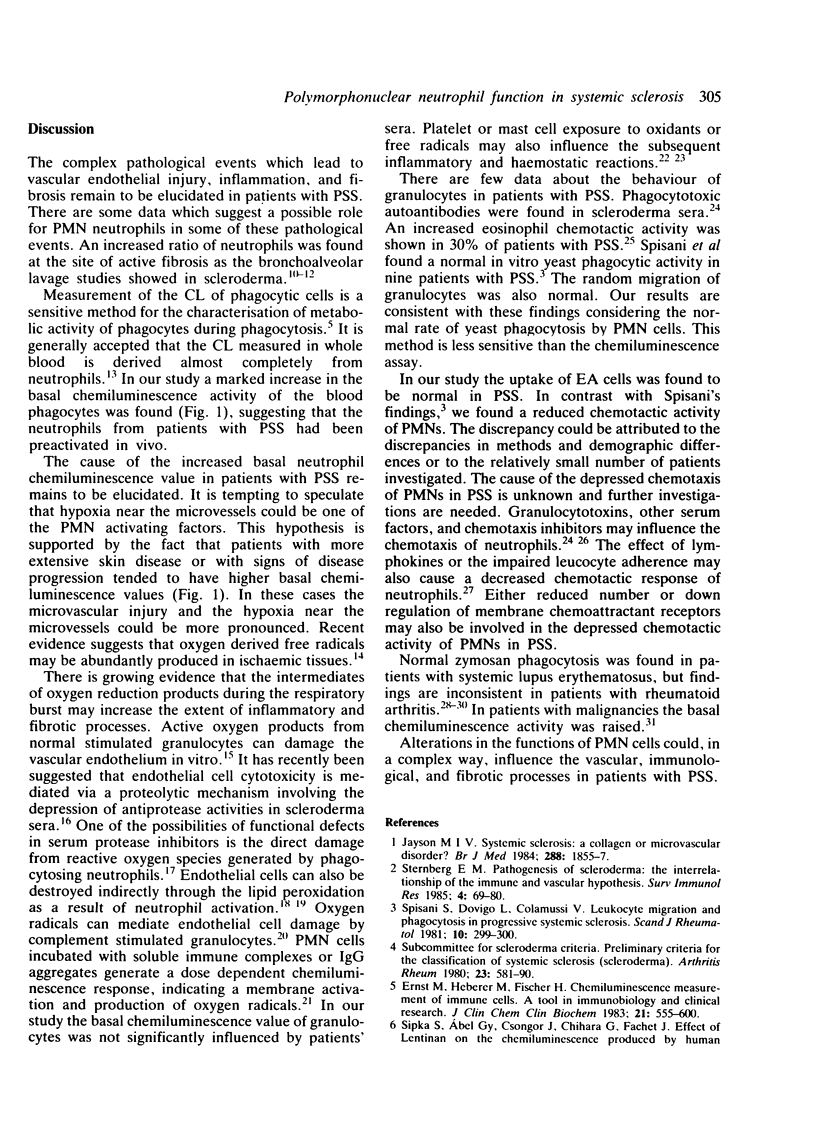
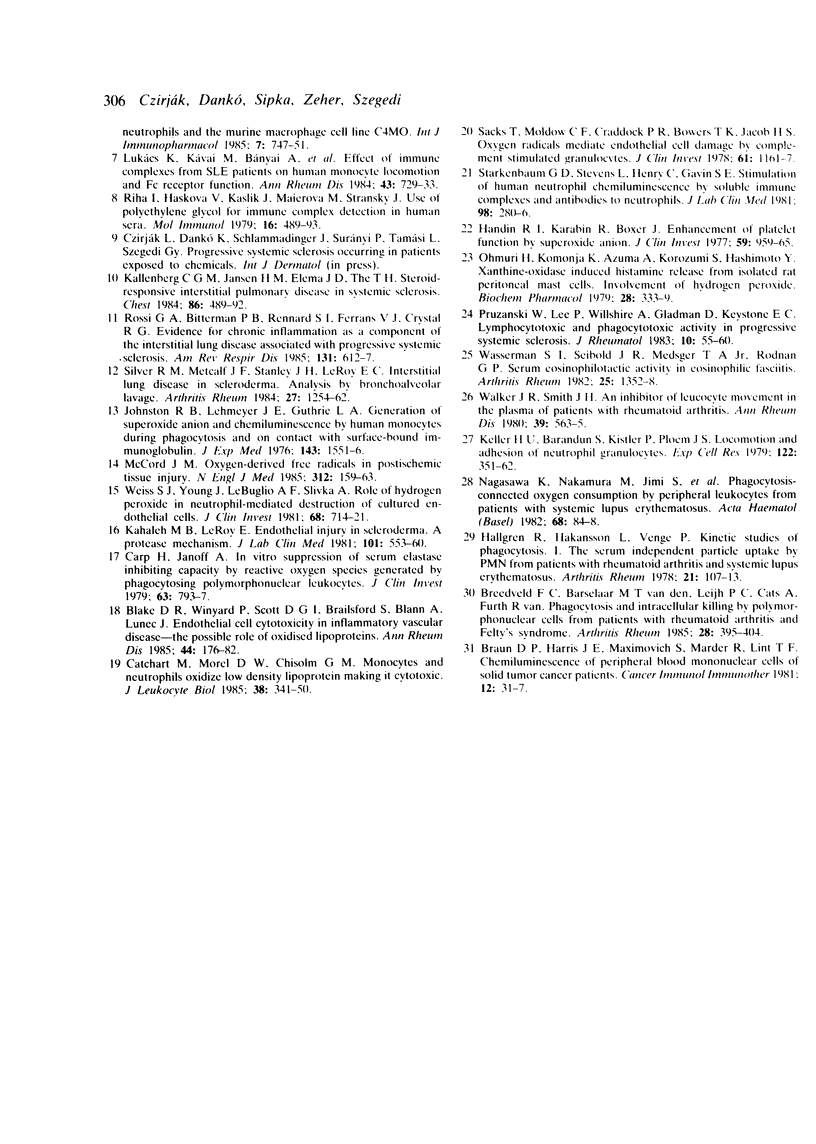
Selected References
These references are in PubMed. This may not be the complete list of references from this article.
- Breedveld F. C., van den Barselaar M. T., Leigh P. C., Cats A., van Furth R. Phagocytosis and intracellular killing by polymorphonuclear cells from patients with rheumatoid arthritis and Felty's syndrome. Arthritis Rheum. 1985 Apr;28(4):395–404. doi: 10.1002/art.1780280407. [DOI] [PubMed] [Google Scholar]
- Cathcart M. K., Morel D. W., Chisolm G. M., 3rd Monocytes and neutrophils oxidize low density lipoprotein making it cytotoxic. J Leukoc Biol. 1985 Aug;38(2):341–350. doi: 10.1002/jlb.38.2.341. [DOI] [PubMed] [Google Scholar]
- Ernst M., Heberer M., Fischer H. Chemiluminescence measurements of immune cells--a tool in immunobiology and clinical research. J Clin Chem Clin Biochem. 1983 Sep;21(9):555–560. [PubMed] [Google Scholar]
- Jayson M. I. Systemic sclerosis: a collagen or microvascular disease? Br Med J (Clin Res Ed) 1984 Jun 23;288(6434):1855–1857. doi: 10.1136/bmj.288.6434.1855. [DOI] [PMC free article] [PubMed] [Google Scholar]
- Johnston R. B., Jr, Lehmeyer J. E., Guthrie L. A. Generation of superoxide anion and chemiluminescence by human monocytes during phagocytosis and on contact with surface-bound immunoglobulin G. J Exp Med. 1976 Jun 1;143(6):1551–1556. doi: 10.1084/jem.143.6.1551. [DOI] [PMC free article] [PubMed] [Google Scholar]
- Kallenberg C. G., Jansen H. M., Elema J. D., The T. H. Steroid-responsive interstitial pulmonary disease in systemic sclerosis. Monitoring by bronchoalveolar lavage. Chest. 1984 Sep;86(3):489–492. doi: 10.1378/chest.86.3.489. [DOI] [PubMed] [Google Scholar]
- McCord J. M. Oxygen-derived free radicals in postischemic tissue injury. N Engl J Med. 1985 Jan 17;312(3):159–163. doi: 10.1056/NEJM198501173120305. [DOI] [PubMed] [Google Scholar]
- Pruzanski W., Lee P., Willshire A., Gladman D., Keystone E. C. Lymphocytotoxic and phagocytotoxic activity in progressive systemic sclerosis. J Rheumatol. 1983 Feb;10(1):55–60. [PubMed] [Google Scholar]
- Rossi G. A., Bitterman P. B., Rennard S. I., Ferrans V. J., Crystal R. G. Evidence for chronic inflammation as a component of the interstitial lung disease associated with progressive systemic sclerosis. Am Rev Respir Dis. 1985 Apr;131(4):612–617. doi: 10.1164/arrd.1985.131.4.612. [DOI] [PubMed] [Google Scholar]
- Spisani S., Dovigo L., Colamussi V. Leukocyte migration and phagocytosis in progressive systemic sclerosis. Scand J Rheumatol. 1981;10(4):299–300. doi: 10.3109/03009748109095319. [DOI] [PubMed] [Google Scholar]
- Sternberg E. M. Pathogenesis of scleroderma: the interrelationship of the immune and vascular hypotheses. Surv Immunol Res. 1985;4(1):69–80. doi: 10.1007/BF02918588. [DOI] [PubMed] [Google Scholar]
- Weiss S. J., Young J., LoBuglio A. F., Slivka A., Nimeh N. F. Role of hydrogen peroxide in neutrophil-mediated destruction of cultured endothelial cells. J Clin Invest. 1981 Sep;68(3):714–721. doi: 10.1172/JCI110307. [DOI] [PMC free article] [PubMed] [Google Scholar]


